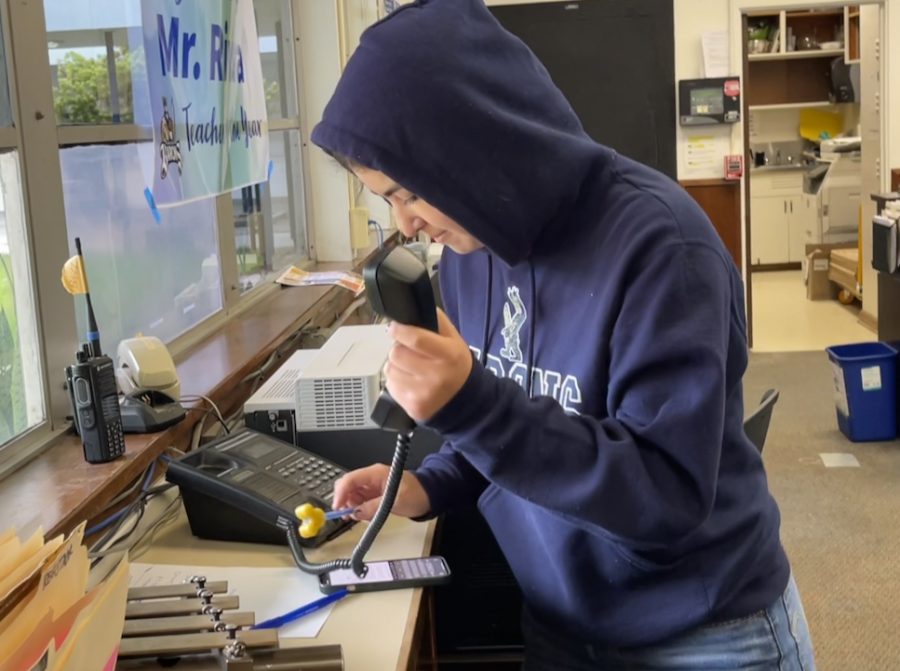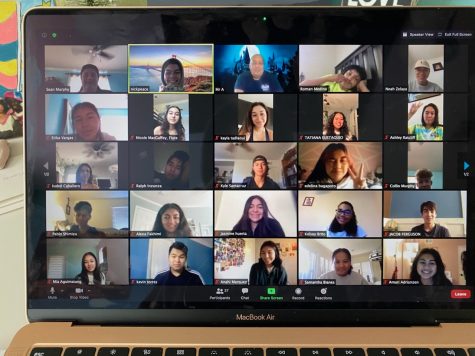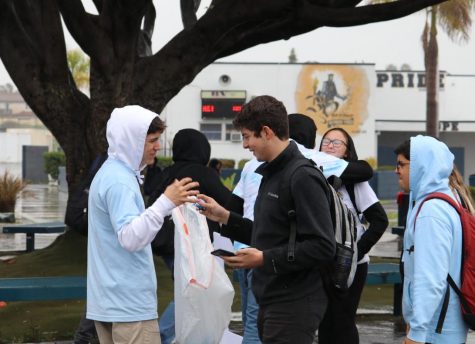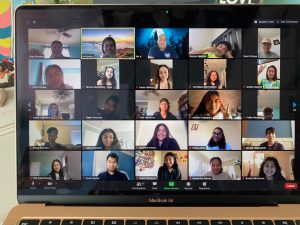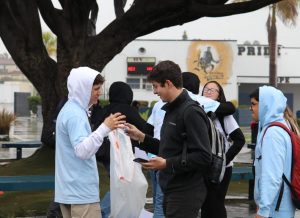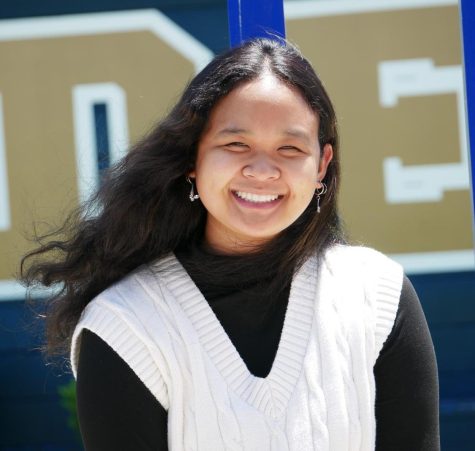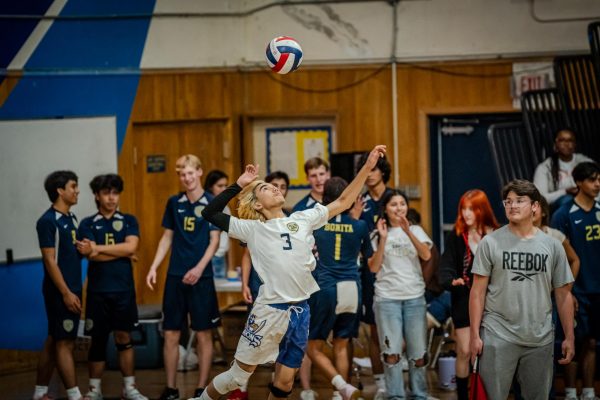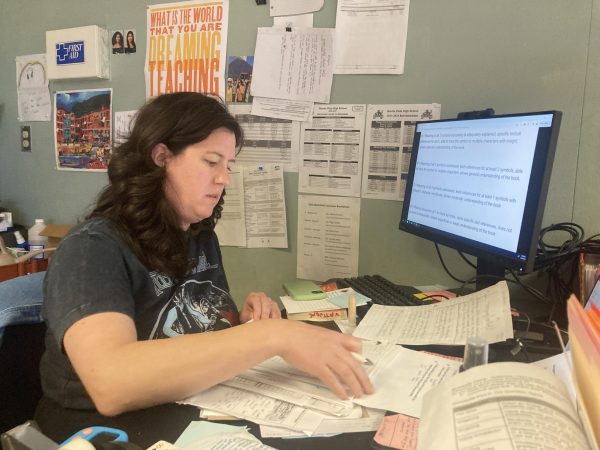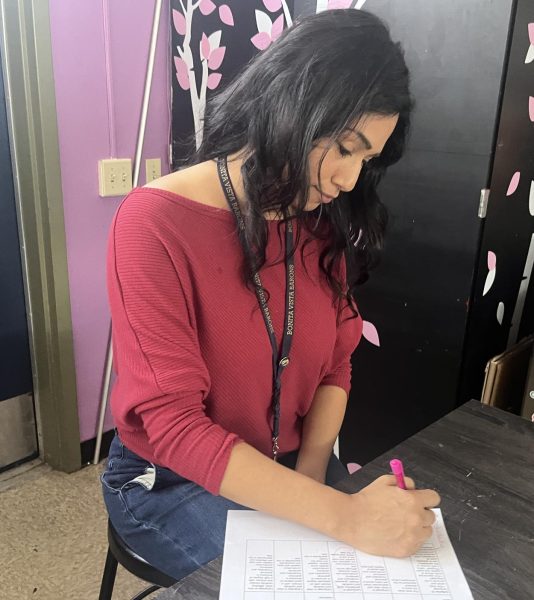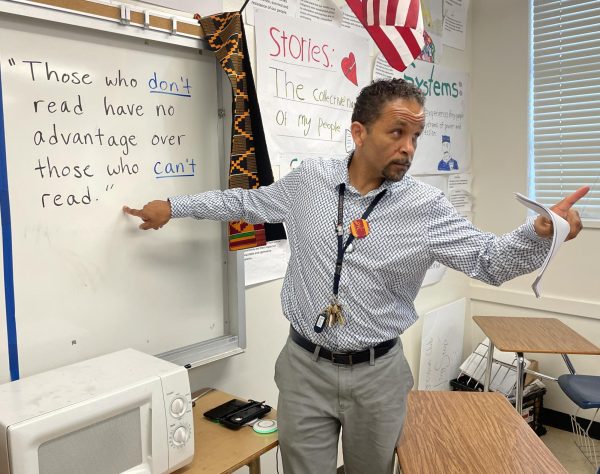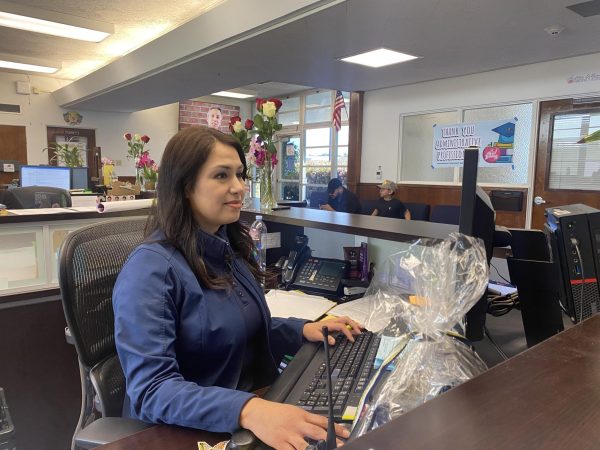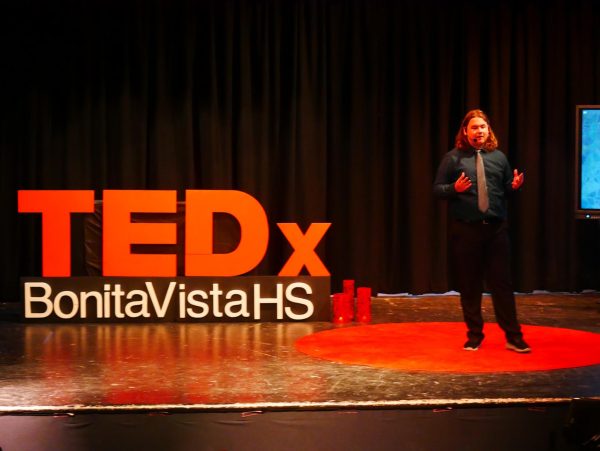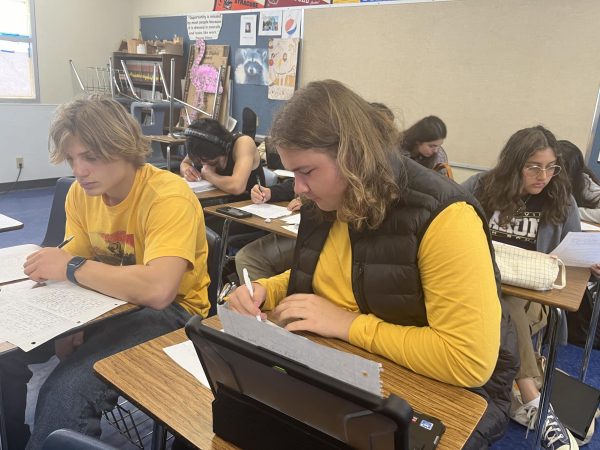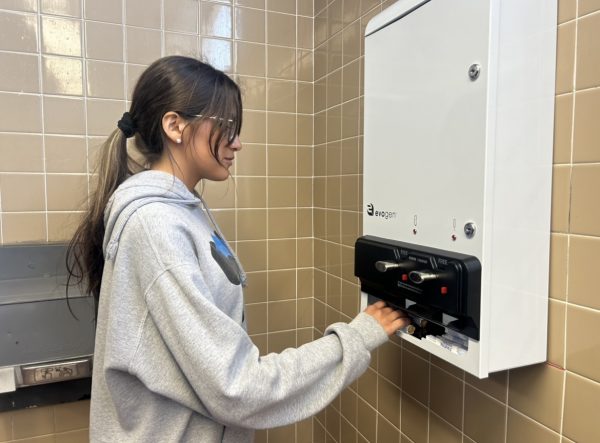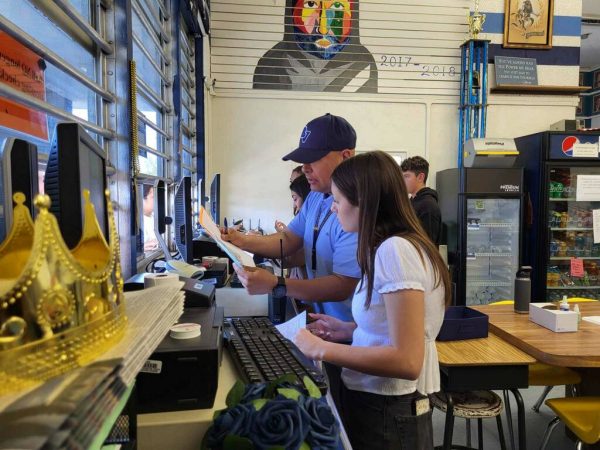Misinformation clouds up election
The truth behind the ASB election voting results
On April 12, in Bonita Vista High’s (BVH) main office, junior and incoming Associated Student Body president Alexis Acosta does the morning announcements. After ringing the xylophone, she led the school in the Pledge of Allegiance.
April 12, 2023
On Mar. 17, the results of the 2023 Associated Student Body (ASB) officer elections were announced. Junior and Spirit Commissioner Alexis Acosta was announced as the ASB president for the following school year. The results sparked mixed reactions among Bonita Vista High (BVH) students, with many believing that junior and Finance Commissioner Diego Dollero should have won the presidency. What many students were not aware of was a new voting policy implemented for this year’s elections.
Previously at BVH, the voting system for the ASB elections was a majority vote of 50 percent plus one to break a tie. This year, a new voting policy was implemented by the 2023-2023 ASB officers, though students may not have been made aware of it. It included four categories based on a merit system, with popularity vote counting 30%, ASB officer vote being 30%, ASB cabinet vote counting 20% and administrator interviews being 20%. Dollero explains what he thinks about the policy.
“I feel like it’s a fair policy. Before agreeing on it, I did ask to change it into a 40% student vote, but we ended up only doing the 30%. I thought students needed to be the biggest part of choosing the candidate,” Dollero said.
The new voting policy was introduced and approved by the ASB alone. As a result the general student population, and even administrators who were part of the admission process were unaware of the percentage breakdown. Acosta explains where the policy originated from.
“Our officers were made aware of [the new policy] at the academy that they go to at the beginning of the year. This year they wanted to change [the policy] because we’re one of the last schools that haven’t changed it,” Acosta said. “They brought it up to the cabinet and we all voted on it during a meeting. We agreed on all the percentages.”
One of the administrators who voted and interviewed candidates was BVH Principal Lee Romero. He worked alongside ASB Advisor Patricia Perez, Athletic Director Tyler Arciaga and 2023 Task Force Advisor Christina Ada to interview applicants. These administrators were made aware of the changes about the policy prior to participating. Romero believes the policy was changed to take into account more than just popularity.
“I’ve never liked a popularity vote, sometimes it’s not the best way to do things. If you want to run for officer– it’s not about how many friends you have, it’s your character, your past history and how hard you work. Those should be equally considered,” Romero said.
Despite being part of the new voting process, Romero still had some misconceptions about the policy itself, specifically about the weight of each category. In fact, students across BVH were unaware of these new weighted categories. As a result, junior and Dollero supporter Jerico Miciano believes the election wasn’t fair.
“I did not know at all that the policy was changed. It was not rightfully implemented. If people had known about it, it would’ve been way more fair. Since people didn’t know about it, it was unfair to students,” Miciano said.
But I definitely think the student vote will change later on, once students are aware of how little their vote really matters.
— ASB Finance Commissioner and junior Diego Dollero
While the unknown change in policy may have led students to believe the results of the election were unfairly altered, both candidates were still well aware of the policy and what they were signing up for. Dollero believes the policy will stay in use, but may change as more students become aware of it.
“All the juniors and sophomores [in ASB] made an agreement on [the policy], so I think it will be used in future ASB elections,” Dollero said. “But I definitely think the student vote will change later on, once students are aware of how little their vote really matters.”
Looking beyond this year’s confusion with the election, Acosta believes the policy is beneficial as it is. She explains that this new voting policy is important for selecting future officers because it takes into account all the people an ASB officer works with, bringing out their best skills.
“It gets the people that see you working [with them] at the ASB [involved], instead of just those who see you at school,” Acosta said. “It also gets the staff involved which I think is very important because you really work with them as an ASB officer.”

